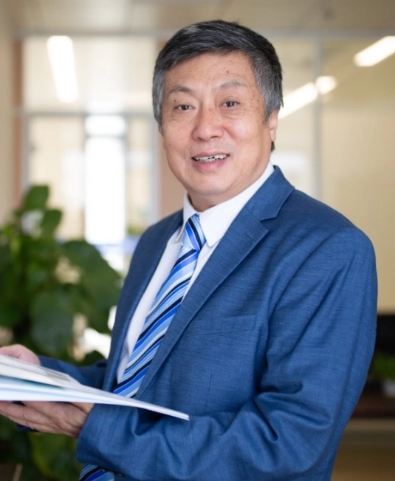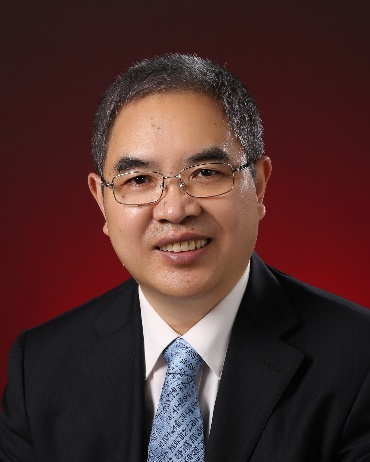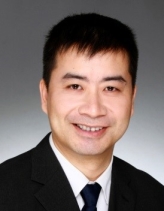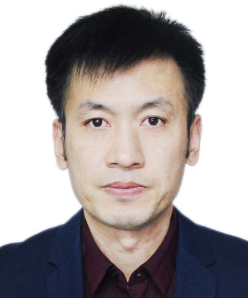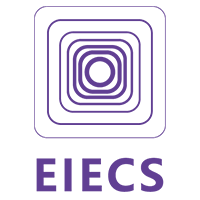
Speakers
Prof. Weijia Jia, IEEE Fellow, Director of Institute of Artificial Intelligence and Future Networking, Director of Super Intelligent Computer Center, Beijing Normal University (BNU, Zhuhai), China BIO: Professor Weijia Jia (Member of National Academy of Artificial Intelligence-NAAI’2025, IEEE Fellow 2020) is currently the Director of Institute of Artificial Intelligence and Future Networking, and the Director of Super Intelligent Computer Center, Beijing Normal University (BNU, Zhuhai); also a Chair Professor at BNBU(UIC), Zhuhai, Guangdong, China. He has served as the VP for Research at UIC in 6/2020-7/2024. Prior joining BNU, he served as the Deputy Director of State Kay Laboratory of Internet of Things for Smart City at the University of Macau and Zhiyuan Chair Professor at Shanghai Jiaotong University, PR China. He received BSc/MSc from Center South University, China in 82/84 and PhD from Polytechnic Faculty of Mons, Belgium in 93, respectively; all in computer science. For 93-95, he joined German National Research Center for Information Science (GMD) in Bonn (St. Augustine) as a research fellow. From 95-13, he worked in City University of Hong Kong as a professor.His contributions have been recoganized for the research of edge AI, optimal network routing and deployment; vertex cover; anycast and multicast protocols; sensors networking; knowledge relation extractions; NLP and intelligent edge computing. He has over 700 publications in the prestige international journals/conferences and research books and book chapters. He has received the best product awards from the International Science & Tech. Expo (Shenzhen) in 2011/2012 and the 1st Prize of Scientific Research Awards from the Ministry of Education of China in 2017 (list 2), 1st Prize of Shanghai Science and Technology Award (2025, list 4) and top 2% World Scientists in Stanford-list (2020-2024) and many provincial science and tech awards. He has served as area editor for various prestige international journals, chair and PC member/keynote speaker for many top international conferences. He is the member of the National Academy of Artificial Intelligence (NAAI), Fellow of IEEE and the Distinguished Member of CCF. |
|
Prof. Pingyi Fan, Member of NAAI, Winner of NAAI 2025 AI Exploration Award, IET Fellow Director of the Open Source Data Cognition Innovation Centre, Department of Electronic Engineering, Tsinghua University, China BIO: He is a tenured professor in the Department of Electronic Engineering at Tsinghua University, Director of the Open Source Data Cognitive Innovation Center, a Member (Academician) of the United States National Academy of Artificial Intelligence (US-NAAI) and the recipient of the NAAI 2025 AI Exploration Award, the Co-Chair of the Academic Committee of the NAAI Institute for Asia, the IET Fellow, and a member of the International Review Committee of IET Fellows. He received his Ph.D. from the Department of Electronic Engineering of Tsinghua University in 1994 and stayed on to teach. He has published more than 600 academic papers, including 181 IEEE journals and 16 ESI highly cited papers. He has applied for more than 40 national patents, 7 international patents, and published 5 academic works. He has won the Best Paper Award at 16 IEEE and other international conferences, including IEEE ICCCS 2024, ICC2020, and Globecom2014, the IEEE TAOS 2020 Best Paper Award, the 2024 High Impact Paper Award from the Chinese Journal of Electronics (CJE) of the Chinese Institute of Electronics, and the IEEE DCASE2024 Challenge Judge’s Award (DCASE2024 Challenge), AEIC (2023) Most Popular Scholar Award, IEEE TWC (2009) Excellent Editor Award, etc. He is currently on the editorial board of IEEE Transactions on Cognitive Communications and Networking (TCCN) (2024-2026), the editorial board of IAES international Journal of Artificial Intelligence (IJAI) (2023-2026), MDPI Section Editor-in-Chief of Electronics (2025-2027), The Chair of China 6G-ANA TG4 , etc. He has served as the General Chair, TPC Chairman or the Keynote Speaker more than 40 times at international conferences. His main research interests include 6G wireless communication networks and machine learning, semantic information theory and big data processing theory, and intelligent network and system detection. |
|
Prof. Dave Towey, HEA Fellow, IEEE / ACM Senior Member Head of School of Computer Science, The University of Nottingham-Ningbo, China BIO: Professor Dave Towey received the BA and MA degrees in computer science, linguistics, and languages from the University of Dublin, Trinity College, Ireland; the MEd degree in education leadership from the University of Bristol, U.K.; and the PhD degreein computer science from The University of Hong Kong, Hong Kong S.A.R., China. He has been with University of Nottingham Ningbo China (UNNC) since 2013, where he serves as the head of the School of Computer Science, and as deputy director of the International Doctoral Innovation Centre. He previously served as the associate dean of education and student experience for the Faculty of Science and Engineering. His current research interests include software testing (especially adaptive random testing, for which he was amongst the earliest researchers who established the field, and metamorphic testing) and technology-enhanced education. He co-founded the ICSE International Workshop on Metamorphic Testing in 2016. He is a fellow of the HEA, and a senior member of the ACM and IEEE. |
|
Prof. Suleman Mazhar, IEEE Senior Member Harbin Engineering University, China BIO: Suleman Mazhar (Senior Member, IEEE) received the postdoctoral degree in information and communication engineering from Georgetown University, Washington, DC, USA, in 2015, and the Ph.D degree in information and communication engineering from Tokyo University, Tokyo, Japan, in 2010.,He loves teaching machine learning and data science and spends leisure time in software consultancy, field work, protecting endangered species in the rivers and endangered beings on the roads. He is currently a Professor with the College of Underwater Acoustic Engineering, Harbin Engineering University, Harbin, China. His research interests include acoustics and machine learning. |
|
Prof. Yandong Gong Beijing Information Science and Technology University, China BIO: Yandong Gong received the Ph.D. degree from Beijing Jiaotong University, China, in 1998. He worked as a Post-Doctoral Researcher with Nanyang Technological University, Singapore, from 2000 to 2002. Later, he joined the Institute for Infocomm Research, A*STAR, Singapore. Since 2019, he has been with Beijing Information Science and Technology University as a Full Professor. He has authored or coauthored more than 200 papers on reputable international journals and conferences. His current research areas include fiber-optic sensors and terahertz technology. |
|
Prof. Bin Liu Dalian University of Technology, China BIO: Liu Bin, Professor, doctoral supervisor, Director of Department of Digital Media Technology, double professor of Affiliated Cancer Hospital of Dalian University of Technology, visiting professor of Ritsumeikan University, Director and technical director of Liaoning Provincial Key Laboratory of Medical Simulation Technology, Dalian high-end talent, member of GF Project Review Panel, CCF Member of China Computer Society, ACM Member of American Computer Society, MICCAI members, Standing member of the Neurological Regeneration and Repair Committee of the Chinese Society of Research Hospitals, Member of the 3D Printing Technology Branch of the Chinese Medical Biotechnology Association, standing director of the Liaoning Anti-Cancer Association, Deputy director of the bone Tumor and Cytology Research Committee of the Liaoning Cell Biology Society, Vice Chairman of the Special Committee of Reconstructive Surgery and Digital Technology of Liaoning Cell Biology Society, standing director of the special Committee of Advanced medico-industrial Fusion technology of Liaoning Cell Biology Society. 2018-2019 Visiting Scholar Joint research at the National University of Singapore. His research interests include computer vision and graphic image, medical image processing and 3D reconstruction, computer-aided preoperative planning and simulation. He presided over 4 projects of the National Natural Science Foundation and more than 10 projects entrusted by provincial and ministerial levels. He has published more than 50 papers in international journals as the first author/corresponding author, and the first author has authorized more than 30 national invention patents and more than 40 software Copyrights. Guided undergraduate/graduate students to win more than 30 gold and silver awards in national and provincial "Challenge Cup", "Internet +" and other competitions. |
|
